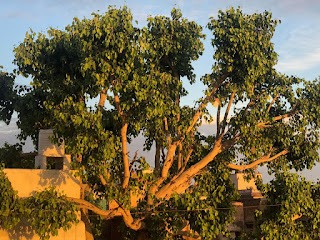Superstitions in India and Scientific Logics Behind Them.
But this faith in their religion sometimes take a form of superstition. Lets have a look on some from "Kaali Billi Rasta Kaat Gai to Nimbu Mirchi Totka".
- Black Cat Crossing Path: In India when a black cat crosses your path it is considered a bad omen. In India black color is linked to Lord Shani, it is believed that when a black cat crosses your path if you are going to any work it brings bad luck for you. To overcome this you should let somebody else to cross the path before you so that the person have all the bad luck and you will not.
- Nazar Utaarna: In India mostly mothers put a black dot on their child's cheek, behind their ear or under their feet. Logic behind this black spot is that due to this spot their child look ugly and no buddy talk ill about their child. It is called nazar utaarna.
- Not to Eat or Step Out During Eclipse: In India it is believed that during Eclipse one should not get outside their workplace or home and should not eat any food. Logic behind this is during eclipse emission of UV rays are high which can harm you.
- Bathe after Attending a Funeral Ceremony: In ancient time our ancestors do not have such vaccinations to cure deadly and infectious diseases. So they took a thorough bathe as a dead body easily get affected by bacteria and microbes and you never know what infections are lurking around.
- Not to Cut Nails After Sunset: At that time there was no electricity in the villages and people cut their nails with blade and scissors sometimes. It is very risky to use sharp blades in the night as it can harm. So to avoid hurting yourself it was told not to cut nails during night or evening time.
- Do not Go Near Peepal Tree in The Night Time: It is believed that ghosts reside on Peepal Tree but the reason is that peepal tree exhales Carbon Dioxide during night time which is harmful for human beings.
- Twitching of Eyes: It is considered as good luck in some culture an bad in some. It differs according to gender as well. However the logic behind this is, it happens due to lot of stress, strain, tiredness and alcohol.
- Not to chew Tulsi Leaves : Logic behind this is Tulsi leaves contains Arsenic which is harmful for teeth and gums. That is why it is said Tulsi leaves should be swallowed not chewed.
Thanks, Have a Great and Wonderful Day... God Bless ♥♥♥







Lovely
ReplyDeleteThanks..!!
DeleteHad not known many.
ReplyDeletehttps://www.indianrailwayrules.com/post/opportunity
Good post
ReplyDeleteNice one
ReplyDeleteNice arty
ReplyDeleteGreat
ReplyDeletehttps://www.businesscrescereveloce.com